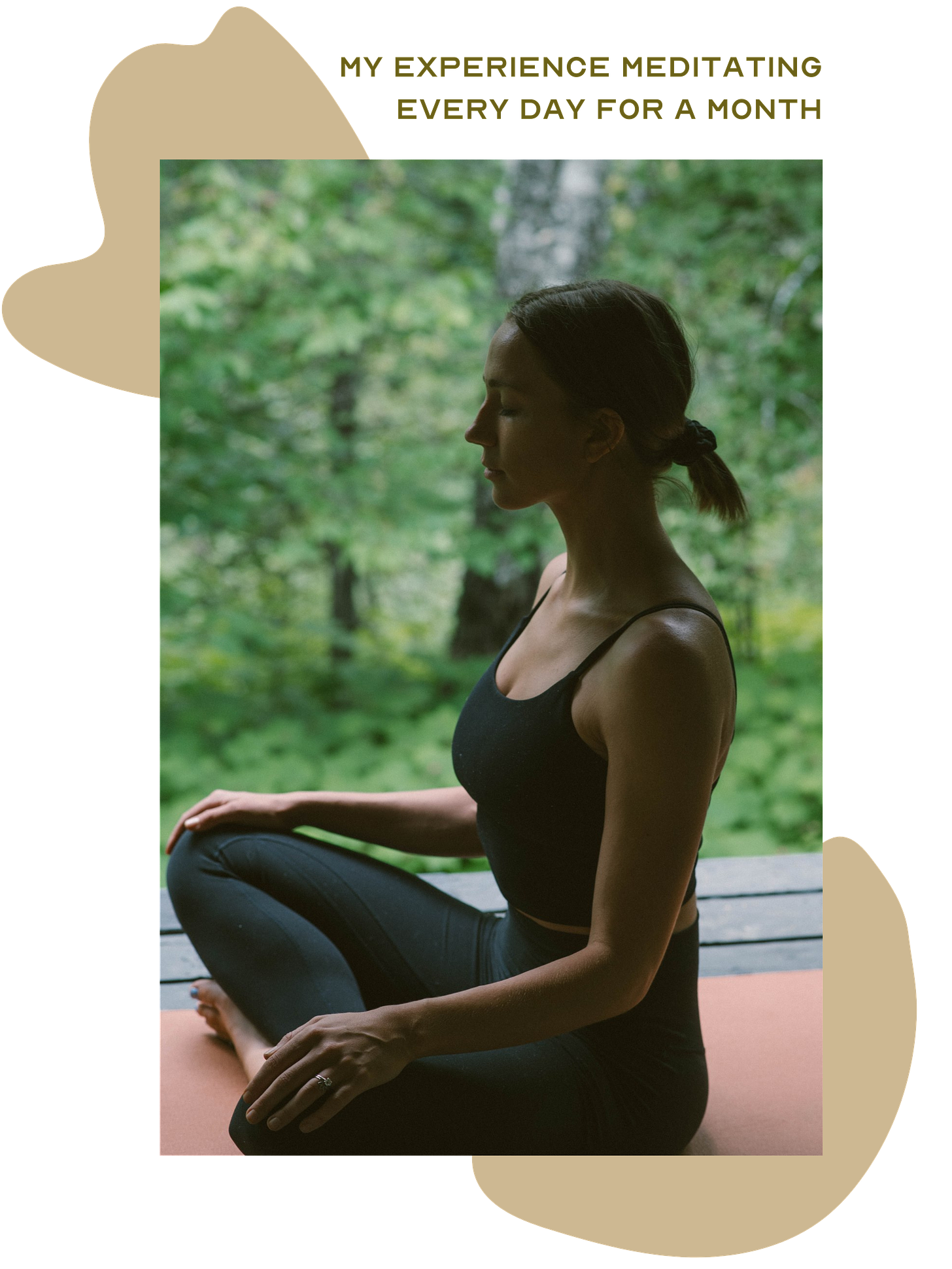I Meditated Every Day For A Month 💭 Here's What I Enjoyed (And What I Didn't...)
the good, the bad, the zen
As you guys may remember from this post about self-experimentation (one of my most popular articles of all time!), each month of 2024 I’m choosing a monthly “challenge” and then reflecting on my experience.
And February was all about meditating. For one month, I did a meditation every day, and today I’m telling you my biggest takeaways.
For context, meditating is something that I’m very familiar and comfortable with, but not super consistent with. I’m can be quite hot and cold with it — either I’m on a streak or I unintentionally take a week off.
But in late 2023 and early 2024 I noticed I was feeling more anxious, more on edge, and just too fast-paced for my liking, so I thought meditation would be a really good way to ground me and bring me back to a simple habit that I know benefits me, but that I struggle to prioritize...
Why meditate?
You’ve heard meditation is generically “good” for us, but specifically how so? Here are some quick facts and summaries of studies (all sources listed below):
In a randomized trial, a group of people trained in mindful meditation lost more weight and improved eating behaviors when compared to the control group that did not meditate.
College-aged students who used a mindfulness phone app showed improvements in depressive symptoms, college adjustment, and resilience in just 10 days.
In a study of military personnel affected by PTSD or another anxiety disorder, 84% of the meditating group had stabilized, decreased, or ceased medications vs. 59% of the control group.
Mindfulness has been correlated with physical reductions in inflammation, improved immune system function, and increases in enzyme activity that guards against cell aging (how’s that for anti-aging?!).
Mindfulness meditation has a demonstrated a positive impact on stress, anxiety, depression, burnout, sense of wellbeing and empathy for nurses and nursing students.
And my personal favorite… a 14-year study comparing over 2,800 people found that those who meditated had 11% lower healthcare costs after one year of meditating, and after five years, the meditating group had 28% lower annual healthcare costs than the non-meditating cohort.
This is such an impactful roundup of info, especially considering that meditation is absolutely free and can be done in as little as a couple of minutes a day. Accessible approaches to health are so important!
The plan: meditate for a month straight
Going into February, my plan was simple (yet still challenging for me!): I was going to meditate for five minutes each and every day.
Prior to this challenge, I’d often meditate for only 2 minutes (yes, really) , so increasing the time to 5 minutes was a goal that felt challenging, but still really attainable.
It sounds so simple, but as we get into it I’ll share what was hard, how I had to give myself tough love to stick with it, some tips and resources that helped me make it a habit I could stick to, and ultimately what I learned in the process of meditating consistently—
First thing was how HARD it was to stick with
When I tracked my spending every day of January, I found that “challenge” to be quite easy. But this meditation one? It was a lot harder for me —
Not so much the task itself, but fitting it into the rest of my life.
For me, meditation can feel so optional; like I always have something better or more productive to do. And that limiting belief was hard for me to get over! If I’m being completely honest, I think I even skipped my meditation practice on February 2nd if I remember correctly.😅
It just was something that in the midst of a busy day of work and parenting and life and cleaning that felt like a luxury that I didn’t have time for.
But in reality it’s only just a few minutes out of a 24-hour day, and I knew I’d waste those minutes somewhere else if I was truthful with myself. Which brings me to my next takeaway, and how I actually started being consistent with it…






